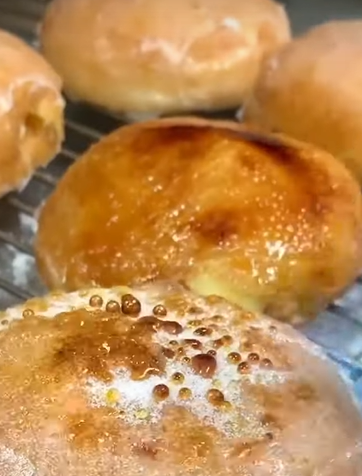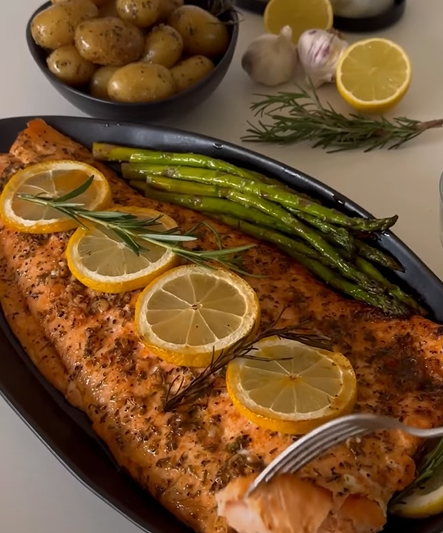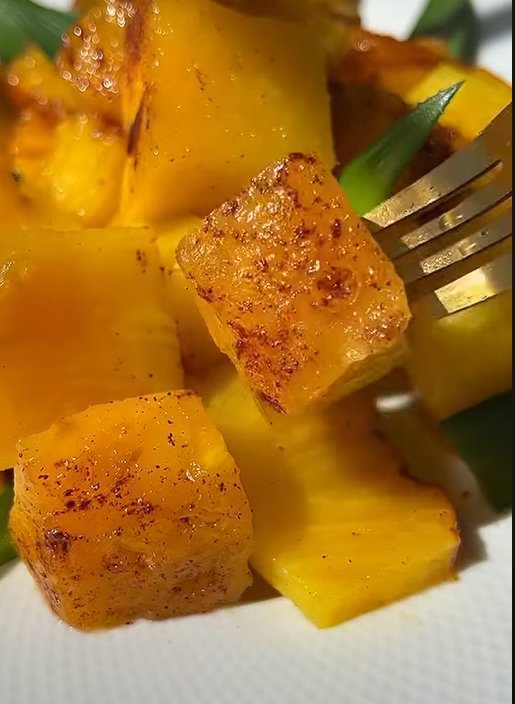I’ve always believed that the best cookies tell a story, and these Big Blue Monster Stuffed Cookies certainly have a tale to tell. With their vibrant blue exterior, surprise-filled centers, and playfully monstrous appearance, they’re guaranteed to bring smiles to faces both young and old. My first encounter with monster cookies happened during a particularly challenging week when I needed something fun and whimsical to lift my spirits. What started as a simple baking experiment turned into one of my most requested recipes.
These aren’t your ordinary cookies. They’re thick, chewy, and packed with surprises that make every bite an adventure. The “monster” aspect comes from their wonderfully chaotic appearance – no two cookies look exactly alike, just like real monsters. The blue color pays homage to everyone’s favorite cookie-loving monster, while the stuffed element adds an unexpected twist that transforms a simple cookie into something truly special.
Understanding Monster Cookies
Monster Cookie : A large, thick cookie typically containing multiple mix-ins like chocolate chips, candies, and sometimes oats or peanut butter
Stuffed Cookie : A cookie with a filling or surprise element baked inside, creating layers of flavor and texture
Food Coloring Technique : The method of incorporating color into dough without affecting taste or texture significantly
Dough Consistency : The proper texture that allows for easy handling while maintaining structural integrity during baking
The beauty of monster cookies lies in their forgiving nature. Unlike delicate French macarons or precise sugar cookies, these beauties embrace imperfection. Their rustic, slightly wild appearance is part of their charm. I’ve found that the more “monstrous” they look, the more people love them.
Essential Ingredients Breakdown
Creating the perfect Big Blue Monster Stuffed Cookies requires understanding each ingredient’s role in the final product. I’ve experimented with countless variations over the years, and this combination delivers the ideal balance of flavor, texture, and visual appeal.
| Ingredient | Amount | Purpose | Substitution Options |
|---|---|---|---|
| All-purpose flour | 2¼ cups | Structure and body | Cake flour (reduce by ¼ cup) |
| Butter (unsalted) | 1 cup | Flavor and tenderness | Margarine or coconut oil |
| Brown sugar | ¾ cup | Moisture and chewiness | Coconut sugar |
| Granulated sugar | ½ cup | Sweetness and texture | Caster sugar |
| Large eggs | 2 | Binding and richness | Flax eggs for vegan option |
| Vanilla extract | 2 tsp | Flavor enhancement | Almond extract |
| Baking soda | 1 tsp | Leavening agent | Baking powder (1½ tsp) |
| Salt | ½ tsp | Flavor balance | Sea salt |
| Blue food coloring | 6-8 drops | Signature color | Natural blue spirulina |
| Chocolate chips | 1 cup | Mix-in texture | White chips or candies |
| Mini marshmallows | ½ cup | Stuffing element | Caramel squares |
The key to achieving that perfect blue color without an artificial taste lies in using gel food coloring rather than liquid. I learned this lesson the hard way after my first batch turned out a sickly green color that looked more alien than monster.
Step-by-Step Preparation Process
My approach to making these cookies has evolved through countless batches, and I’ve discovered that the order of operations makes a significant difference in the final texture.
Preparing Your Workspace
Before diving into the actual mixing, I always ensure my workspace is properly organized. This prevents any mishaps and makes the entire process smoother. Room temperature ingredients are crucial – I typically remove my butter and eggs from the refrigerator about an hour before baking.
The Creaming Process
Start by creaming the butter with both sugars until the mixture becomes light and fluffy. This usually takes about 3-4 minutes with an electric mixer. I can’t stress enough how important this step is – proper creaming incorporates air into the dough, creating that perfect chewy texture we’re after.
Add the eggs one at a time, beating well after each addition. Then incorporate the vanilla extract. At this point, your mixture should look smooth and well-combined.
Incorporating Dry Ingredients
In a separate bowl, whisk together the flour, baking soda, and salt. I always sift my flour to prevent lumps and ensure even distribution. Gradually add the dry ingredients to the wet mixture, mixing just until combined. Overmixing at this stage can lead to tough cookies.
Achieving the Perfect Blue
Here’s where the magic happens. Add the blue food coloring gradually, mixing until you achieve your desired shade. I prefer a vibrant Cookie Monster blue, but you can adjust based on your preference. The dough might look slightly darker than your intended final color since baking tends to lighten it slightly.
Adding Mix-ins and Stuffing Elements
Fold in the chocolate chips and any other desired mix-ins. For the stuffing element, I like to reserve some marshmallows or chocolate pieces to press into the center of each cookie before baking.
Baking Techniques and Temperature Control
The baking process requires careful attention to temperature and timing. I’ve learned that oven inconsistencies can dramatically affect the outcome, so I always use an oven thermometer to ensure accuracy.
| Baking Variable | Recommended Setting | Alternative Options | Impact on Final Product |
|---|---|---|---|
| Oven Temperature | 350°F (175°C) | 325°F for softer cookies | Higher = crispier edges |
| Baking Time | 10-12 minutes | 8-9 for softer, 13-14 for crispier | Longer = more set |
| Cookie Size | 3-inch diameter | 2-inch for smaller portions | Larger = longer baking time |
| Pan Type | Light-colored aluminum | Dark pans (reduce temp by 25°F) | Dark pans = faster browning |
| Cooling Time | 5 minutes on pan | 2-3 for softer texture | Longer = firmer cookies |

I always line my baking sheets with parchment paper, which prevents sticking and makes cleanup much easier. Space the cookies at least 2 inches apart to allow for spreading.
Stuffing Variations and Creative Fillings
The stuffing element is where you can really let your creativity shine. Over the years, I’ve experimented with numerous fillings, and each brings its own unique character to the cookies.
Sweet Stuffing Options
My personal favorite stuffing combinations include mini marshmallows with chocolate chips, which create delightful pockets of gooey sweetness. Caramel squares work wonderfully too, though they require careful temperature monitoring to prevent burning.
Peanut butter cups, chopped into quarters, create an incredible flavor contrast with the vanilla cookie base. For those who enjoy fruity elements, I’ve had great success with dried cranberries mixed with white chocolate chips.
Textural Considerations
When selecting stuffing ingredients, consider how they’ll behave during baking. Ingredients that melt completely might disappear into the cookie, while those that maintain some structure will provide that satisfying surprise element we’re after.
I’ve found that a combination of ingredients works best – something that melts slightly for flavor distribution and something that maintains its shape for texture contrast.
Troubleshooting Common Issues
Even with the best intentions, cookie baking can present challenges. I’ve encountered most of these issues myself and learned valuable solutions along the way.
Color Problems
If your cookies aren’t achieving the desired blue color, the issue usually lies with the food coloring type or amount. Gel colorings work better than liquid varieties and won’t affect the dough consistency.
Texture Issues
Cookies that spread too much often indicate butter that was too warm or insufficient flour. Conversely, cookies that don’t spread enough might need slightly softer butter or less flour.
Stuffing Distribution
Uneven stuffing distribution can be addressed by creating small wells in the dough balls and pressing the stuffing ingredients firmly into the center before baking.
Storage and Freshness Tips
Proper storage extends the life of these cookies significantly. I store them in airtight containers with parchment paper between layers to prevent sticking. At room temperature, they maintain optimal texture for up to one week.
For longer storage, these cookies freeze beautifully. I wrap them individually in plastic wrap before placing them in freezer bags. They’ll maintain quality for up to three months frozen.
| Storage Method | Duration | Texture Maintenance | Best Practices |
|---|---|---|---|
| Room Temperature | 5-7 days | Maintains chewiness | Airtight container |
| Refrigerated | 2 weeks | Slightly firmer | Bring to room temp before serving |
| Frozen (baked) | 3 months | Excellent when thawed | Individual wrapping |
| Frozen (dough) | 6 months | Fresh-baked texture | Portion before freezing |
Nutritional Considerations
While these cookies are definitely a treat, understanding their nutritional profile helps with portion planning and dietary considerations.
| Nutrient | Per Cookie (estimated) | Daily Value % | Notes |
|---|---|---|---|
| Calories | 285 | 14% | Based on 2000 calorie diet |
| Total Fat | 12g | 18% | Primarily from butter |
| Saturated Fat | 7g | 35% | Monitor for heart health |
| Carbohydrates | 42g | 14% | Energy source |
| Sugar | 28g | 31% | Added and natural sugars |
| Protein | 4g | 8% | From eggs and flour |
| Fiber | 1g | 4% | Minimal from flour |
| Sodium | 180mg | 8% | From salt and baking soda |
I always remind people that these are meant to be enjoyed as occasional treats rather than everyday snacks. The joy they bring often outweighs strict nutritional concerns when consumed mindfully.
Serving Suggestions and Presentation
The presentation of these cookies can elevate them from simple treats to memorable experiences. I’ve served them at numerous gatherings, and the response is always enthusiastic.
For children’s parties, I arrange them on colorful plates with complementary decorations. The blue color pairs beautifully with yellow or orange accents, creating a vibrant display that matches their playful nature.
During movie nights, I serve them alongside tall glasses of cold milk or hot chocolate, depending on the season. The combination of warm, chewy cookie with cold milk creates a perfect textural contrast.
For more formal occasions, I’ve presented them on elegant serving platters with small bowls of vanilla ice cream for those who want to create impromptu ice cream sandwiches.
Seasonal Adaptations
These cookies adapt wonderfully to different seasons and holidays. I’ve created variations that incorporate seasonal elements while maintaining the core monster cookie concept.
During autumn, I substitute some chocolate chips with candy corn pieces and add a hint of cinnamon to the dough. The orange and yellow colors create a beautiful contrast against the blue base.
Winter versions might include crushed peppermint candies or mini chocolate chips mixed with dried cranberries for a festive touch.
Spring adaptations could incorporate pastel-colored mini marshmallows or white chocolate chips with a touch of lemon zest for brightness.
Questions and Answers
Q. How do I prevent the blue food coloring from making my cookies taste artificial? Use gel food coloring instead of liquid varieties, and add it gradually until you achieve the desired color. High-quality gel colorings typically have minimal impact on flavor.
Q. Can I make these cookies without eggs for someone with allergies? Absolutely! Replace each egg with a flax egg (1 tablespoon ground flaxseed mixed with 3 tablespoons water, let sit for 5 minutes) or use commercial egg replacers following package directions.
Q. Why do my cookies spread too much during baking? This usually indicates that your butter was too warm when mixing, or your dough needs chilling. Try refrigerating the shaped dough balls for 30 minutes before baking.
Q. What’s the best way to ensure even stuffing distribution? Create small wells in your dough balls using your thumb, then press the stuffing ingredients firmly into the center. Cover with a small amount of additional dough if needed.
Q. Can I use natural food coloring instead of artificial? Yes! Blue spirulina powder works well, though you’ll need to experiment with quantities. Start with 1/2 teaspoon and adjust as needed. The color will be more muted than artificial coloring.
Q. How do I know when the cookies are perfectly baked? Look for edges that are just set but centers that still appear slightly underbaked. They’ll continue cooking on the hot pan after removal from the oven.
Q. Can I double this recipe for large batches? Certainly! When doubling, mix the dough in two separate batches to ensure even distribution of ingredients. Large batches can be challenging to mix uniformly.
Q. What should I do if my dough seems too sticky to handle? Chill the dough for 30-60 minutes in the refrigerator. If it’s still too sticky, gradually add small amounts of flour until it reaches the right consistency.
Q. How can I make these cookies more nutritious without sacrificing taste? Try substituting up to 1/3 of the all-purpose flour with whole wheat pastry flour, or add rolled oats for extra fiber. You can also reduce sugar slightly and add more mix-ins like nuts or seeds.
Q. Is it possible to make these cookies smaller for portion control? Absolutely! Make 2-inch diameter cookies and reduce baking time to 8-9 minutes. This creates perfect bite-sized treats while maintaining the same great flavor and texture.
These Big Blue Monster Stuffed Cookies represent more than just a recipe to me – they’re a celebration of creativity, joy, and the simple pleasure of sharing something delicious with others. Every time I make them, I’m reminded of why I fell in love with baking in the first place. The combination of vibrant color, surprise elements, and incredible flavor creates an experience that goes beyond typical cookie expectations. Whether you’re baking for a special occasion or simply want to bring some whimsy into your kitchen, these cookies deliver on both visual impact and taste satisfaction.



